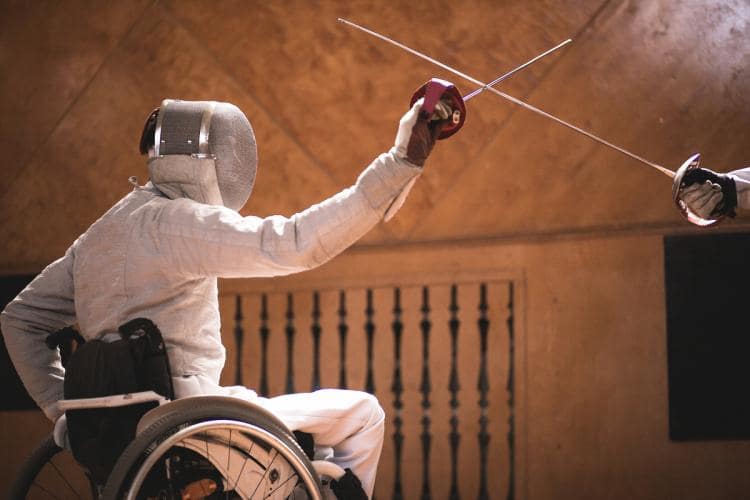The Disability You Don’t Have
“I’m grateful to not be that guy.” How often do you say this to yourself when you see someone with an obvious disability? That same gratitude is what you need to feel when it’s you who are hurt.

I have never met a paraplegic person who did not, at some point, mention how lucky they were not to be a quadriplegic. And I have often met quadriplegic people who are grateful to still be alive and able to enjoy their families and their work. We have all met injured people who, despite their disabilities, astound us with their optimism and good humor.
Yet, we also have all felt incredibly depressed when a relatively minor injury has ended our sports season or interfered with our performance. The contrast in the severity of an injury with the range of emotions people feel toward them is both striking and useful.
All athletes get injured at some point in their careers. The best ones use their injury as an excuse to train other parts of their bodies so that they come back achieving our goal for them to be “fitter, faster and stronger” than they were before the injury. The very best train their minds to focus on new skills and park their depression over the lost season in the back of their mental storage containers. There they stay, accessed only as a reminder of how detrimental such self-defeating emotions can be.
An injured person becomes disabled when he or she cannot overcome the physical or mental setbacks they encounter. Many people with an apparent disability are not disabled very much at all and appropriately resent the label. Yet many people with relatively minor injuries have tremendous difficulty moving past the temporary interruption in their lives.
What prepares us to be injured and to overcome? While early childhood experiences start ingraining our behavior patterns, the surprise injuries later in life often create disappointments that children don’t yet face. The fear that you won’t recover (very common with back pain), the concern that you will let down your teammates, the cost of medical care and rehabilitation—all these factors magnify the potential depression.
You can start your preparation now by looking at your life and truly appreciating what you have: your physical and mental skills, the beauty of the environment you live in, and the phenomenal potential to improve the world by your contributions. Constantly remind yourself of the wide and deep range of emotional and physical wealth that you possess. That way, when the snow snake reaches out and grabs your ski and you come to the sudden end of your winter ski sports season, you will instantly shift to expanding your alternative gym skills and enjoying other, equally exhilarating activities.
Disability is only as bad as you perceive it to be, and only as disabling as you let it be. Empowering your mind and your body to be the multispecialty, multidimensional, most omnipotent person you can imagine is your best insurance plan.
